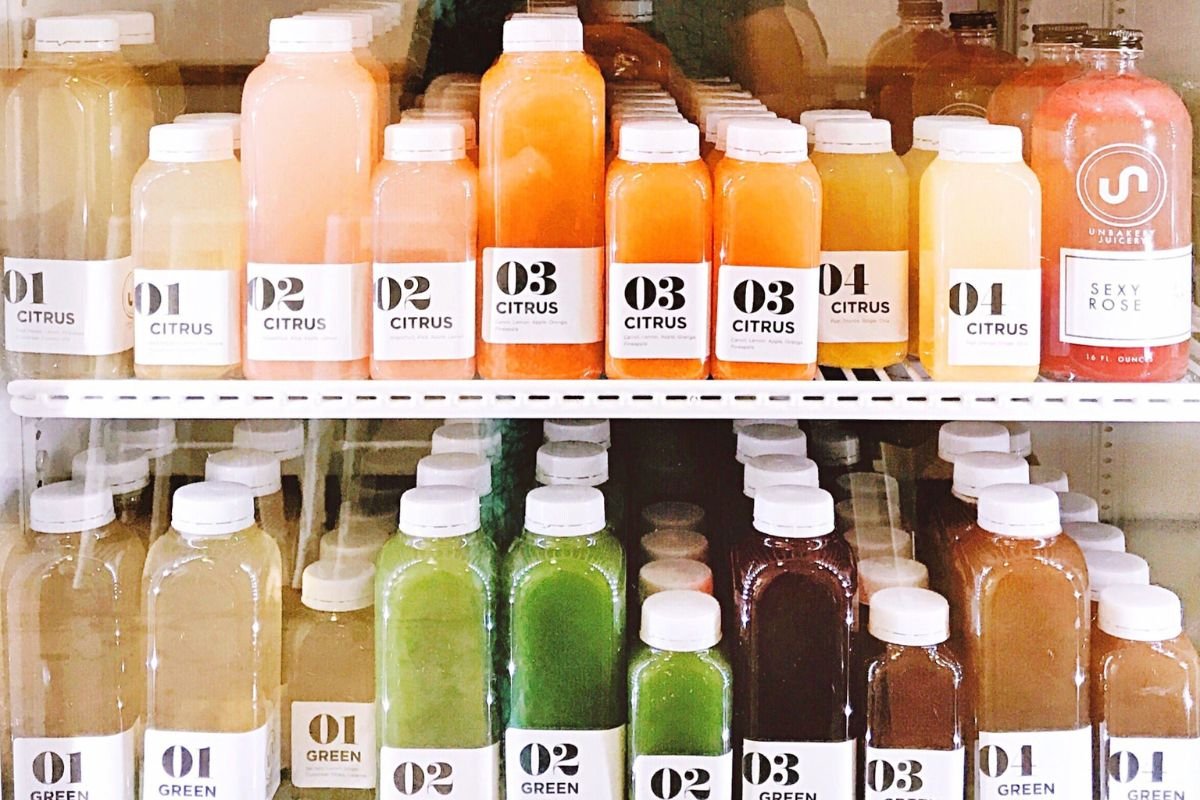Dopamine Detox: The Psychology of Risk, Reward and Addiction
Dopamine detoxing, also known as dopamine fasting, has been buzzing around techy, trendy productivity spaces since a life coach promoted the technique on the YouTube channel Improvement Pill in 2018. ¹
Encompassing a set of rules designed to strictly control the brain’s pleasure response in order to boost energy, focus and efficiency for specific tasks, dopamine detoxing could be considered the “scientific” method behind monk mode; the infamous all-in approach to productivity popularized on TikTok, Instagram and overly-inspirational blogs across the internet.
Yes, dopamine detoxing is based on science (kind of / not really).
Yes, like all phenom diets, its actual efficacy is debated by fanatic followers on the one hand and actual scientists on the other.
And yes, it involves abstaining from all kinds of enjoyable brain-stimulating activities, from eating ice cream to making eye contact with people
Driving the dopamine detox trend is the social psychology of reward, compulsion and risk - and that’s what we’ll explore in this article.
Learn what dopamine actually is, how this brain chemical affects your behavior, and the answer to what everyone really wants to know; should I try a dopamine detox?
What is a Dopamine Detox?
Some years ago, Dr. Cameron Sepah, a psychiatrist and addiction specialist, introduced the term dopamine detox. Since then, it has been used in many different ways worldwide.
What exactly does it entail? Is it actually possible (let alone healthy) to detox from dopamine?
Detoxing dopamine is about taking a break from sources of instant gratification and resetting your brain's reward system. This means avoiding activities that are dopamine triggers, such as social media, playing video games alone, or junk food. Instead, the focus is on engaging in healthier habits promoting well-being and personal growth, such as meditation, reading, journaling, and leisure time in nature.
Our brains are wired to seek pleasure and reward. With constant access to technology and other pre-packaged sources of instant gratification, our modern lifestyle can overstimulate our dopamine receptors, leading to addictive behaviors, fatigue, difficulty concentrating, and mental health problems.
The Psychology of Risk, Reward, and Addiction
No discussion of a dopamine detox is fully complete without marveling at the magic of the brain.
Think about something you enjoy doing. Maybe hiking in nature or spending time with friends.
As you imagine yourself doing that activity, you may be feeling more energized, content, or relaxed. This is all thanks to dopamine, a neurotransmitter that plays a vital role in your brain's reward system.
Your brain is wired to seek out pleasure and reward, which is why activities like emotional eating, having sex, or even just receiving a compliment can feel so good.
This reward system can also lead to compulsive and impulsive behaviors if unchecked. Your brain begins to crave the rush of dopamine that comes when you satisfy impulses and ease discomfort by, for example, checking your phone constantly.
And there’s an additional risk here. When you become accustomed to a certain level of “pleasure,” you may begin seeking more extreme or pleasurable experiences to achieve that same level of satisfaction. This can lead to compulsive behaviors like excessive internet usage, alcohol consumption, gambling, or dangerous sexual practices. It's fascinating to think about how simple pleasures can easily influence how your brain works.
Ultimately, dopamine is a powerful force in shaping your behaviors and emotions. By understanding the science behind it, you can gain insight into how you can use it to your advantage to improve your mood and engage in healthy activities.
Digital Detoxing & Productivity
Digital detoxing can have positive effects on your productivity, whether you choose an app to help kick your phone addiction or reduce screen time altogether. Taking a break from technology can help reduce stress, increase creativity, and improve focus, leading to higher productivity levels. In a recent study, researchers at the Center for Advanced Internet Studies (CAIS) in Germany examined the relationship between digital work tools, cognitive overload, digital detox measures, perceived work performance, and well-being. ² According to the study, screen time may be causing cognitive overload, leading to decreased productivity and well-being. The study also found that digital detoxing can be the answer to this problem.
You can find great tools online if you’re unsure how to get started. Like the Simplish 7-Day Productivity Detox Challenge, based on our principle of productivity+ and backed by mental health professionals like myself! You'll get the 7-day, mindfulness-based challenge delivered right to your inbox to help you get things done. There are several ways to incorporate digital detoxing into your daily routines. For example, taking social media breaks can help reduce your dependence on technology and improve your ability to focus. But be mindful! There’s more to productivity than just detoxing.
Getting your fill of good-for-you activities like exercise, meditation, and time in nature are essential to reducing stress and promoting creativity, too.
Our Cultural Obsession with Detoxing
As a psychologist, I've noticed a trend in recent years: detoxing as a solution for almost everything. More and more people are turning to this solution to deal with various health problems. Take, for instance, juice detoxing. Many people turn to juice detoxes as a quick way to reset their bodies and kickstart a healthier lifestyle. If you walk into an average grocery store, you will likely find juices that promise to give you more energy, revive your immune system, reboot your brain - and more.
Juice is awesome, don’t get me wrong.
But it’s not enough to truly accomplish any of these things.
While juice detoxes can help you consume more fruits and vegetables and boost vitamins and minerals, they often lack essential nutrients like protein and fiber. Rather than relying on a juice detox for a quick fix to feeling better, I encourage people to make sustainable lifestyle and diet changes. The same thing is generally true with digital detoxing.
The problem with extreme solutions like digital fasting is they can be unsustainable. It's easy to go all-in on a detox for a week or two, but what happens when it is over?
Are you any better equipped to handle the challenges of technology in your daily life?
If you’re looking for long-term change, you can’t just shut down all of your devices until you feel human again. You need to create healthier relationships with technology on a daily basis, one small step at a time.
The Simplish 7-day productivity challenge can be a great starting point for making healthier decisions in the long run. Just make sure you don't stop there. Keep moving towards a healthier life holistically - and remember that there really are no shortcuts.
Brain Chemistry 101: What is Dopamine?
Because dopamine is associated with pleasurable sensations, it's often called the "feel-good" neurotransmitter. ³ When you are happy or satisfied, your brain releases this chemical, motivating you to seek similar future experiences. By understanding the role dopamine plays in the brain, you can better understand why you seek out specific experiences and behaviors and how to make healthier choices.
But what exactly what triggers dopamine release? These are a few examples:
Eating sugary and sweet foods
Engaging in sexual activity
Listening to music you enjoy
Completing a task or achieving a goal
Exercising
Video games
So…Should You Try a Dopamine Detox ?
Dopamine detoxes can be useful tools for those struggling with impulsive behavior. If you limit your exposure to dopamine-releasing external stimuli, like social media or junk food, you can retrain your brain to find healthier ways to produce dopamine and to feel pleasure.
However, it's important to note that dopamine is a crucial neurotransmitter in the brain, responsible for regulating mood, motivation, and the neuro-cognition that stimulates movement. Actively inhibiting its production can lead to depression, anxiety, and apathy in some people, which can negatively affect mental health.
Benefits of Dopamine Detox: Delaying the Brain’s Reward Chemistry
Dopamine fasting has many benefits that help people lead healthier and more fulfilling lives. Delaying the brain's reward chemistry can help reset our brains and improve our overall well-being.
Limiting your brain’s production of dopamine can (theoretically);
Reduce stress. By taking a break from the constant stimulation of social media, video games, email, and other digital distractions, you can decrease your cortisol levels and experience greater calm and relaxation.
Improve focus. You can train your mind to concentrate on a single task for a longer period of time, leading to increased productivity and better overall performance.
Boost efficiency. You may find yourself accomplishing more in a shorter amount of time without feeling drained or overwhelmed. Detoxing frees up more time to focus on your work and achieve your goals.
Release creativity. Stepping away from your usual sources of inspiration allows your brain to explore new ideas and perspectives.
Overall, adhering to a dopamine detox can help you lead a more balanced, fulfilling, and connected life when planned consciously into your daily routine.
When to Avoid Dopamine Fasting
While dopamine fasting has many potential benefits, it's essential to recognize that it may not be appropriate in certain situations. There are several evidence-based contraindications for dopamine fasting. Avoid this method and try something else if you:
Underlying mental health conditions: If you have a history of mental health conditions, such as depression, anxiety, or bipolar disorder. Sudden changes in dopamine levels could worsen symptoms or trigger relapses.
History of alcohol or drug abuse: Individuals with a history of addictive activities and substance use disorders, particularly those involving dopamine-regulating substances like recreational drugs, alcohol, or gambling. Sudden dopamine fast could lead to intense cravings, withdrawal symptoms, and relapse.
Use specific medications: Individuals taking dopamine-regulating medications, such as antidepressants, antipsychotics, or Parkinson's drugs. Sudden changes in dopamine levels could interact with medication effects, leading to unpredictable outcomes. It is always recommended to consult with a mental health professional before attempting dopamine detox or any other significant changes in health behaviors.
-
Improvement Pill. “How To GET Your Life Back Together - Dopamine Fast,” November 10, 2018. https://www.youtube.com/watch?v=vl-44jDYDJQ.
Schmitt, Josephine B., Johannes Breuer, and Tim Wulf. “From Cognitive Overload to Digital Detox: Psychological Implications of Telework during the COVID-19 Pandemic.” Computers in Human Behavior 124 (November 1, 2021): 106899. https://doi.org/10.1016/j.chb.2021.106899.
Watson, Stephanie. “Feel-Good Hormones: How They Affect Your Mind, Mood and Body.” Harvard Health, July 20, 2021. https://www.health.harvard.edu/mind-and-mood/feel-good-hormones-how-they-affect-your-mind-mood-and-body.


